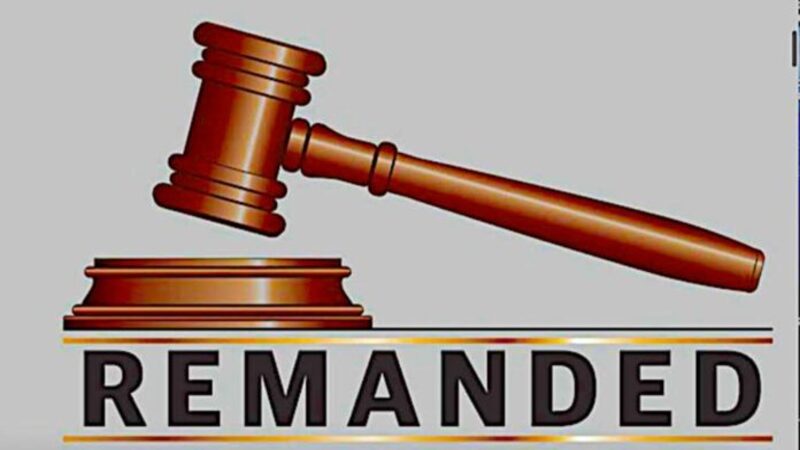Sirajudheen vs. Zeenath & Ors. [Civil Appeal No. 1491 of 2023]
What is the scope of remand under Order XLI of the Civil Procedure Code?
RELEVANT PARAGRAPH
9.1. The provisions contained in Rules 23, 23-A, 24,
27 and 33 of Order XLI CPC read as under: –
23. Remand of case by Appellate Court.- Where the Court from whose decree an appeal is preferred has disposed of the suit upon a preliminary point and the decree is reversed in appeal, the Appellate Court may, if it thinks fit, by order remand the case, and may further direct what issue or issues shall be tried in the case so remanded, and shall send a copy of its judgment and order to the Court from whose decree the appeal is preferred, which directions to re-admit the suit under its original number in the register of civil suits, and proceed to determine the suit; and the evidence (if any) recorded during the original trial shall, subject to all just exceptions, be evidence during the trial after remand. 23-A. Remand in other cases.-Where the Court from whose decree an appeal is preferred has disposed of the case otherwise than on a preliminary point, and the decree is reversed in appeal and a re-trial is considered necessary, the Appellate Court shall have the same powers as it has under rule 23.
……
9.2. While explaining the scope of Rules 23 and 23-A
of Order XLI CPC, in the case of Municipal Corporation, Hyderabad (supra), this
Court has observed as under: –
32. A distinction must be borne in mind between diverse powers of the appellate court to pass an order of remand. The scope of remand in terms of Order 41 Rule 23 is extremely limited. The suit was not decided on a preliminary issue. Order 41 Rule 23 was therefore not available. On what basis, the secondary evidence was allowed to be led is not clear. The High Court did not set aside the orders refusing to adduce secondary evidence. 33. Order 41 Rule 23-A of the Code of Civil Procedure is also not attracted. The High Court had not arrived at a finding that a retrial was necessary. The High Court again has not arrived at a finding that the decree is liable to be reversed. No case has been made out for invoking the jurisdiction of the Court under Order 41 Rule 23 of the Code. 34. An order of remand cannot be passed on ipse dixit of the court……
11.1. With respect, what turns on the observations in
the impugned judgment is that the High Court was unable to arrive at a
conclusion on the basis of the material on record. However, fact of the matter
remains that on the basis of the same material on record, the Trial Court had
indeed arrived at a definite conclusion that the plaintiff had failed to
establish her case and hence, the suit was liable to be dismissed. As indicated
hereinabove, the High Court has not at all referred to the findings of the Trial
Court and it is difficult to find from the judgment impugned as to why at all
those findings of the Trial Court were not to be sustained or the decree was
required to be reversed.
11.2. After having taken note of the salient features
of the impugned judgment as also the significant omissions therein, if we refer
to the provisions empowering the Appellate Court to make an order of remand, it
is difficult to find any justification for remand by the High Court in the
present case. As noticed, the scope of remand in terms of Rule 23 of Order XLI
CPC is extremely limited and that provision is inapplicable because the suit in
question had not been disposed of on a preliminary point. The remand in the
present case could only be correlated with Rule 23-A of Order XLI CPC and for
its applicability, the necessary requirements are that “the decree is reversed
in appeal and a re-trial is considered necessary”. As noticed hereinabove,
there is no reason whatsoever available in the impugned judgment as to why and
on what basis the decree was reversed by the High Court. Obviously, the
reversal has to be based on cogent reasons and for that matter, adverting to
and dealing with the reasons that had prevailed with the Trial Court remains a
sine qua non. Thus, remand in the present case cannot be held justified even in
terms of Rule 23-A of Order XLI CPC.
